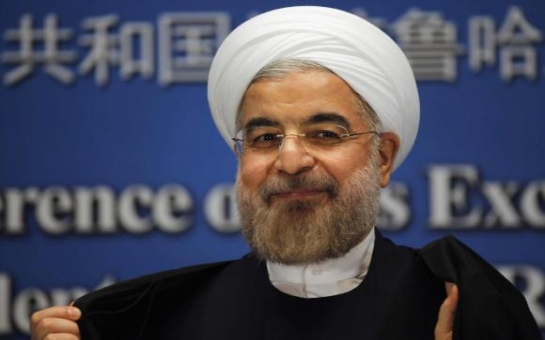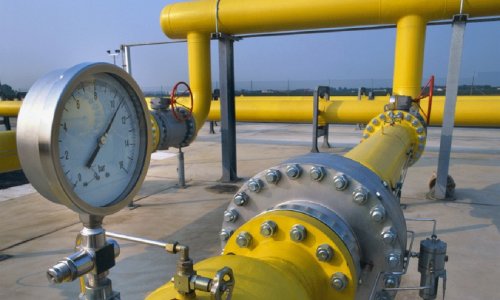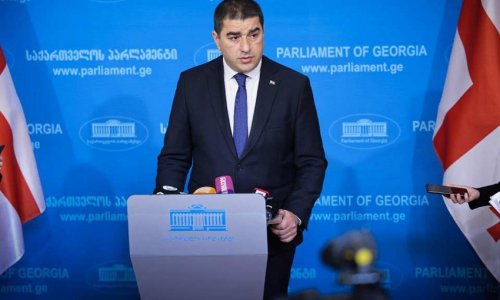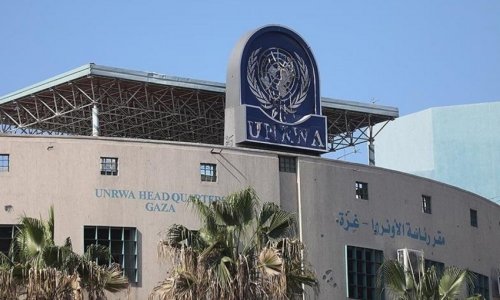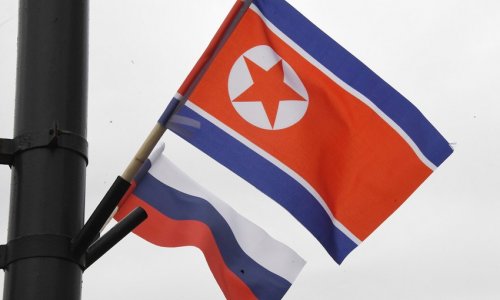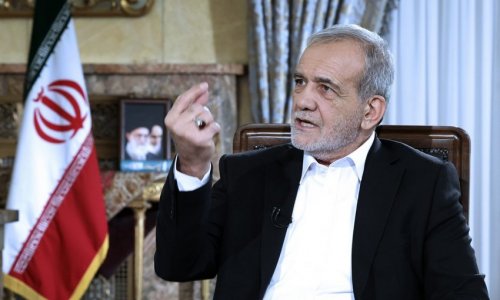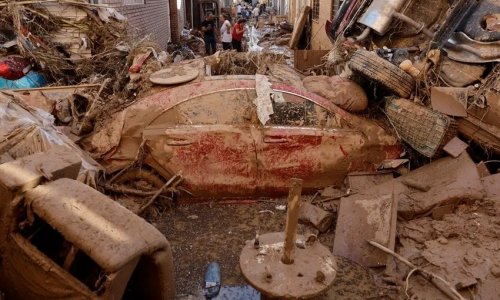By Parisa Hafezi
Iranian President Hassan Rouhani visits Turkey on Monday to discuss expansion of trade and the civil war in Syria which has stained relations between the two neighbors.
The visit will be the first by an Iranian president to Turkey since 2008. Iran and Turkey are at odds over Syria, with Iran being a strong strategic ally of Syrian President Bashar al-Assad since the start of the uprising against him, while Turkey has been one of his fiercest critics, supporting his opponents and giving refuge to rebel fighters.
Last year the election of pragmatist Rouhani, whose foreign policy of "prudence and moderation" has eased Tehran's international isolation, and his concern over the rise of al Qaeda in Syria have spurred hopes of a political rapprochement between Ankara and Tehran.
"Turkey is our neighbor and relations with the neighbors are the most important priority of Iran's foreign policy," Iranian Foreign Minister Mohammad Javad Zarif was quoted as saying on Sunday by the semi-official Fars news agency.
"During the president's visit, we will study many issues ... including the common problems we have in the region."
The deputy chairman of Turkey's ruling Justice and Development (AK) Party said Iran's Syria policy was on the agenda during Rouhani's visit.
"One topic we will discuss with Rouhani is Iran's position regarding the Syrian civil war," said Yasin Aktay on Thursday. "Iran's policy on Syria is not going to benefit Iran."
Analysts say an Iranian-Turkish rapprochement on Syria is essential for stability in the Middle East, even if it is just at the level of exchanging views.
TRADE AND COMMERCE
But while deep divisions remain between Ankara and Tehran over the conflict in Syria, the potential of an Iranian market of 76 million people with some of the world's biggest oil and gas reserves is a magnet for Turkish companies.
During Turkish Prime Minister Tayyip Erdogan's visit to Iran in January, a preferential trade agreement was signed aimed at paving the ground to boost trade to $30 billion by 2015.
Iranian officials say trade between the countries stood at $22 billion (16.2 billion euros) in 2012, before dipping to $20 billion in 2013, and that it should reach $30 billion in 2015.
Iran was Turkey's third largest export market in 2012. In fact, Iranian media said, Turkey exports more than 20,000 products to Iran, among them gold and silver.
Washington has been unhappy over continued trade with Iran by its Turkish ally and has blacklisted some Turkish firms involved in sidestepping the sanctions, imposed on Iran over its disputed nuclear program.
Iran's Communications Minister Mahmoud Vaezi said "six cooperation agreements in various fields, including the energy sector, will be signed during Rouhani's visit to Ankara," Iran's state TV reported.
Analysts said one of the key topics during Rouhani's visit would be Turkey's demand for a discount on the price of natural gas from Iran, which Ankara deems too expensive compared with other suppliers like Russia and Azerbaijan.
Under a contract signed in 1996, Turkey imports 10 billion cubic meters per year of gas from Iran. The contract became active in 2001.
GAS PRICE DISPUTE
Turkey's state-owned Petroleum Pipeline Corporation (BOTAS) applied to an international court of arbitration in 2012 for a ruling on Iran's gas pricing. The case is still pending.
Iran has so far dismissed Turkish demands to drop the price of gas under the current agreement, saying that Tehran could sell more natural gas to its energy-hungry neighbor if a new agreement was signed.
Turkish Energy Minister Taner Yildiz told Reuters in an interview on Jan. 30 that Turkey could double the amount of natural gas it imports from Iran if the two countries can agree on a price.
Turkey depends on imports for almost all of its natural gas needs and is keen to increase oil and gas imports from Tehran in anticipation of sanctions against Iran's huge energy sector being dismantled.
"Turkey needs Iran's natural gas and oil and that is why Erdogan's government tries to maintain energy ties with Tehran," said Tehran-based analyst Hamid Sadeghi.
"Iran also needs Turkey as the main buyer of its natural gas. They will reach an agreement."
Rouhani's visit to Turkey takes place as Iran and six major powers prepare to hold another round of talks on a final deal aimed at ending a decade-old dispute over Tehran’s nuclear program. A preliminary deal was penned in Geneva in November, under which Iran accepted to halt some sensitive nuclear activities in exchange for partial easing of sanctions.
Bakudaily.az

